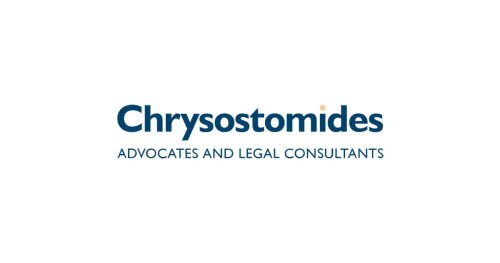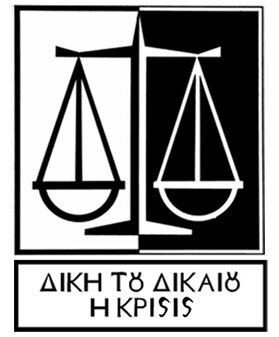Best Collaborative Law Lawyers in Limassol
Share your needs with us, get contacted by law firms.
Free. Takes 2 min.
Free Guide to Hiring a Family Lawyer
List of the best lawyers in Limassol, Cyprus
About Collaborative Law in Limassol, Cyprus:
Collaborative Law in Limassol, Cyprus is a method of alternative dispute resolution where both parties work together with their lawyers to reach an agreement outside of the courtroom. It focuses on cooperation, communication, and finding mutually beneficial solutions without the need for litigation.
Why You May Need a Lawyer:
You may need a lawyer in Collaborative Law if you are going through a divorce, child custody dispute, or any other legal matter where you want to avoid going to court. A lawyer can help you navigate the process, protect your interests, and ensure that the final agreement is fair and legally binding.
Local Laws Overview:
In Limassol, Cyprus, Collaborative Law is governed by the Collaborative Law Act of 2014. This legislation outlines the process, requirements, and standards for practicing Collaborative Law in the region. It is important to be familiar with these laws and regulations when seeking legal advice in Collaborative Law.
Frequently Asked Questions:
Q: What is the role of a lawyer in Collaborative Law?
A: A lawyer in Collaborative Law acts as a legal advisor, advocate, and negotiator for their client. They help navigate the process, protect their client's interests, and ensure that the final agreement is fair and legally binding.
Q: How long does the Collaborative Law process typically take?
A: The length of the Collaborative Law process can vary depending on the complexity of the case and the willingness of both parties to cooperate. It can take anywhere from a few months to a year to reach a final agreement.
Q: Can Collaborative Law be used for any type of legal dispute?
A: Collaborative Law is commonly used for family law matters such as divorce, child custody, and spousal support. However, it can also be used for other civil disputes such as property disputes, business conflicts, and estate planning.
Q: What are the benefits of Collaborative Law compared to litigation?
A: Collaborative Law offers a more cooperative, cost-effective, and timely approach to resolving legal disputes compared to traditional litigation. It allows both parties to maintain control over the outcome and fosters better communication and long-term solutions.
Q: How do I find a qualified Collaborative Law lawyer in Limassol, Cyprus?
A: You can start by asking for recommendations from friends, family, or other legal professionals. You can also search online for Collaborative Law professionals in Limassol or contact the Cyprus Bar Association for referrals.
Q: What happens if we cannot reach an agreement in Collaborative Law?
A: If the parties cannot reach an agreement in Collaborative Law, they may need to resort to litigation and go to court. However, the collaborative process often results in a higher likelihood of reaching a settlement compared to traditional methods.
Q: Is Collaborative Law confidential?
A: Yes, Collaborative Law is confidential, and discussions, negotiations, and documents shared during the process cannot be used in court if the process fails and the case goes to litigation.
Q: Can I switch from Collaborative Law to litigation if needed?
A: Yes, if both parties agree, they can choose to end the Collaborative Law process and pursue litigation instead. However, this may result in additional costs, time, and stress compared to continuing with the collaborative approach.
Q: What are the costs associated with Collaborative Law in Limassol, Cyprus?
A: The costs of Collaborative Law in Limassol, Cyprus can vary depending on the complexity of the case, the hourly rates of the lawyers involved, and any additional expenses such as mediation or expert fees. It is important to discuss fees and payment arrangements with your lawyer upfront.
Q: How can I prepare for a Collaborative Law process?
A: To prepare for a Collaborative Law process, it is important to gather all relevant documents, be open to negotiations, communicate openly with the other party, and work with your lawyer to outline your goals and priorities for the process.
Additional Resources:
For more information on Collaborative Law in Limassol, Cyprus, you can visit the Cyprus Bar Association website, contact local law firms specializing in Collaborative Law, or attend workshops and seminars on alternative dispute resolution in your area.
Next Steps:
If you are in need of legal assistance in Collaborative Law in Limassol, Cyprus, it is recommended to schedule a consultation with a qualified Collaborative Law lawyer to discuss your options, rights, and potential outcomes. Be sure to ask about their experience, fees, and approach to Collaborative Law to ensure they are the right fit for your case.
Lawzana helps you find the best lawyers and law firms in Limassol through a curated and pre-screened list of qualified legal professionals. Our platform offers rankings and detailed profiles of attorneys and law firms, allowing you to compare based on practice areas, including Collaborative Law, experience, and client feedback.
Each profile includes a description of the firm's areas of practice, client reviews, team members and partners, year of establishment, spoken languages, office locations, contact information, social media presence, and any published articles or resources. Most firms on our platform speak English and are experienced in both local and international legal matters.
Get a quote from top-rated law firms in Limassol, Cyprus — quickly, securely, and without unnecessary hassle.
Disclaimer:
The information provided on this page is for general informational purposes only and does not constitute legal advice. While we strive to ensure the accuracy and relevance of the content, legal information may change over time, and interpretations of the law can vary. You should always consult with a qualified legal professional for advice specific to your situation.
We disclaim all liability for actions taken or not taken based on the content of this page. If you believe any information is incorrect or outdated, please contact us, and we will review and update it where appropriate.















